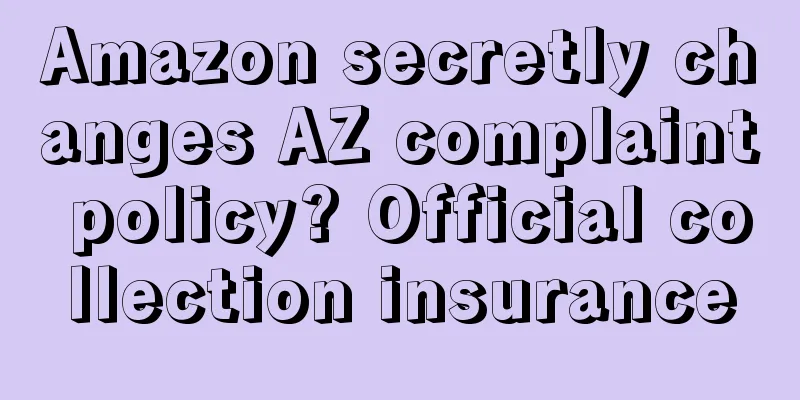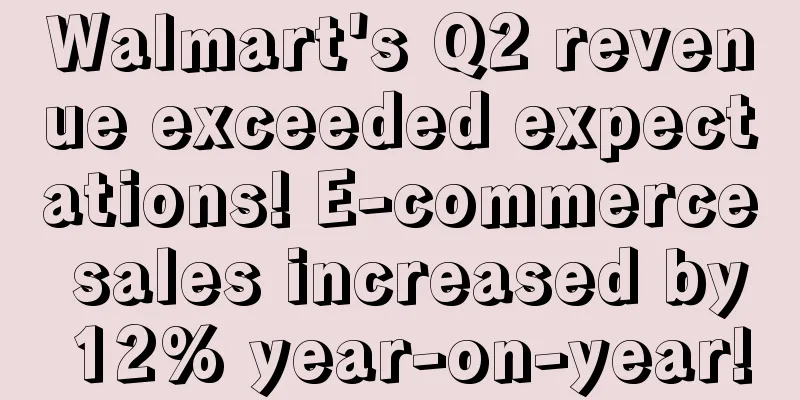Amazon secretly changes AZ complaint policy? Official collection insurance

|
Today, foreign media broke the news that Amazon has revised its A-to-Z complaint policy in the past two days. Starting from September 1, if consumers file an AZ complaint for personal injury or property damage, Amazon will use a new review process! It may force sellers to refund or even compensate! Amazon stated in the notice that because third-party sellers often refuse or are unable to take responsibility for problems caused by their products, the official has hereby updated the AZ complaint process. When complaints of personal injury or property damage occur, Amazon will first activate its own fraud and abuse detection system , and combine the results of relevant third-party independent insurance anti-fraud experts to review whether the consumer's claim is compliant. After confirming that the consumer's claim is true, Amazon will contact the seller directly. After receiving the claim, the seller can choose to compensate the consumer, or file a defense and appeal, which will still be reviewed by Amazon's independent agency and a third-party independent agency. Unless the final review rejects the consumer's claim, the seller will have to pay for it. If the seller loses the case or does not respond, Amazon will pay the consumer first, and then find the seller to enforce it separately afterwards. What is the situation with this claim? Will it lead to an increase in operating costs for our sellers? To be honest, Amazon’s combined punch this time caught sellers off guard. Product liability claims We have reported many times in a row about sellers’ products causing accidents to consumers and then claiming compensation from Amazon. In most compensation lawsuits, Amazon is actually a victim of defective products. Because the compensation figures for such injuries in the United States are very high, most ordinary third-party sellers will definitely think of running away as soon as they encounter such personal injury or property loss . Unlucky Amazon has become an object that can be executed and has been sued by consumers. In the early years, Amazon was able to win the case of balance car fires, and the court rejected the consumer’s claim. In recent years, Amazon has lost one after another in claims for dog leash injuries and laptop battery fires, and was forced to take the blame for compensation for third-party sellers . The official has been worried about it. After the states amended their laws, Amazon could no longer evade responsibility in such cases. Amazon finally gave up and was ready to take full responsibility for any product accidents caused by sellers, which led to the change in Amazon's current compensation policy. If something goes wrong, Amazon will first compensate consumers if it is confirmed after review, to protect their experience and rights, and then deal with the sellers themselves , which is equivalent to a role of seeking compensation on their behalf. What if the seller refuses to comply, or has no money in the account to comply? Amazon can’t be the scapegoat . Here comes another incident. While announcing the AZ complaint update, Amazon also sent a mass email to sellers saying that on September 1, it will update the current insurance terms and require all sellers to purchase product liability insurance. Is it necessary to buy commercial insurance? From this email, we can see how to ask sellers for reviews to prevent sellers from running away after AZ complaints are changed to Amazon paying first. That is, sellers are forced to purchase commercial insurance. In case the product fails and the seller runs away, there is still commercial insurance to cover Amazon. This time, Amazon also asked sellers in the email to add Amazon to the insured for this reason. Everything is to cover Amazon. Moreover, the update on September 1st actually raised the threshold from the original "total sales exceeding US$10,000 for three consecutive months" to "single-month sales exceeding US$10,000." That is to say, sellers with monthly sales between US$3,300-10,000 have changed from having to purchase insurance (the original policy) to not being required to do so (the new policy in September). The update of raising the threshold is a good thing, as it lets off some small sellers with sales of less than 10,000 dollars, but it is also bad news. Raising the threshold also means stricter enforcement. When Amazon initially introduced the insurance requirements in March, it was difficult to enforce because the requirements were too low. A seller with sales of 3,000 dollars a month would have to spend hundreds of dollars on insurance premiums. Who could afford this? If the enforcement was strict, small sellers would definitely quit. So last time Amazon threw out the news, it caused a wave of ripples but there was no follow-up. The threshold of 10,000 dollars a month is an important node. Sellers at this level already have a certain ability to bear the premiums, so Amazon will definitely not be soft this time. In the first half of the year, there were review checks and account suspensions due to small cards. In the second half of the year, there were brand joint punishments, compulsory insurance, and automatic compensation for az claims. Amazon is experiencing a period of frequent policy changes with the replacement of the person in charge of the platform. How can Chinese cross-border sellers break through in this fierce competition and changing environment? |
<<: Store brands disappear?! Amazon sellers suddenly encounter difficulties
>>: Amazon's targeted policy has taken effect! Chinese sellers must pay attention!
Recommend
Zhiwubuyan AI Assistant is officially launched! Comparison of the different effects of private AI models and large AI models
Table of contents 1. What is the Zhiwubuyan AI Ass...
Temu sues 20 fake websites in the US
It is learned that according to the South China Mo...
What is paromi? Paromi Review
Paromi is a unique oasis that specializes in selli...
"After being laid off by a large company, I turned the tide overseas"
"I want to talk about the project again... Is...
A powerful tool to improve conversion and repeat purchases, Americans' enthusiasm for "membership subscription" remains unabated
It is learned that recently, PYMNTS and sticky.io ...
What is ExportHub? ExportHub Review
ExportHub is an international B2B platform. Export...
Shopify is betting on B2B business, and merchants of all types are rushing in
It is learned that in addition to D2C as its core ...
What is Fujian Midodo? Fujian Midodo Review
Fujian Midodo Network Technology Co., Ltd. is a gl...
One year after Andy Jassy took over as CEO, Amazon's direction has changed
On July 5, 2021, Amazon founder Bezos officially s...
Amazon is raising costs in disguise? A large number of sellers are complaining!
It is learned that since April 2023, the euro exch...
Sign up now! Amazon's two big sales are coming soon
text Recently, the submission period for Canada’s...
What is Furui Business? Furui Business Review
Furui Business is a business management company fo...
What is American Shopping? American Shopping Review
The American Shopping Network is affiliated to Sha...
Amazon first abuses sellers but then gives them benefits. Is the spring coming for sellers?
Amazon has been making a lot of weird moves recent...
What is BlueFriday? BlueFriday Review
BlueFriday is one of the top organizations for Chi...









